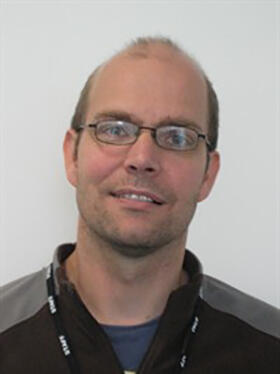
LSTM’s seminar series continued today with a presentation by Professor Richard Pleass, of LSTM’s Parasitology Department, who delivered a presentation entitled “HexaGard™: A Biomimetic of Intravenous Immunoglobin (IVIG) for the treatment of autoimmune disease”.
Professor Pleass started by looking at clinical need for IVIg, with over 500 million people using it worldwide, the diseases it is used to treat and the fact that the market need for it is growing exponentially. He discussed the limitations of IVIg in business and biological terms, particularly the fact that it is being increasingly used for the treatment of autoimmune disease, that less than 5% of injected IVIg is active in vivo, which means that a high dose is required, and 46 donations of 500 mls of blood is required for one 140g treatment.
He went on to discuss the quality by design approach taken in the development of HexaGard™, a biomimetic of IVIg, ensuring that it fulfilled the 10 S’s in that it is: small; stable; safe; synthesizable; synthetic; scalable; suitable; superior; saleable and serviceable. He looked at its relative advantages, it being superior to IVIg both in terms of it binding to inhibitory receptors and in vivo platelet recovery. He looked at the predicted costs of production in comparison to IVIg, and an estimated profit margin for its production given that HexaGard™ should be significantly less expensive to produce yet significantly more effective.
He went on to look at LSTM’s proven track record in drug discovery and development, the future for the development of HexaGard™ and its current status. He then concluded by discussing the competitor landscape and looking at the advantages that HexaGard™ has over other molecules in development.
Professor Pleass then answered a wide range of questions from students and staff in the auditorium about how relevant the discovery was in terms of tropical medicine, if the structure could be changed to increase efficacy and had there been any work carried out looking at what made the 5% of IVIg that was active in vivo so effective.
Professor Pleass, who was appointed as LSTM’s Chair in Parasite Immunology in 2010, won the Prix de l’Innovation 2013, also known as the Universal Biotech Innovation Prize 2013 in Paris earlier this month, for his work on HexGard™.